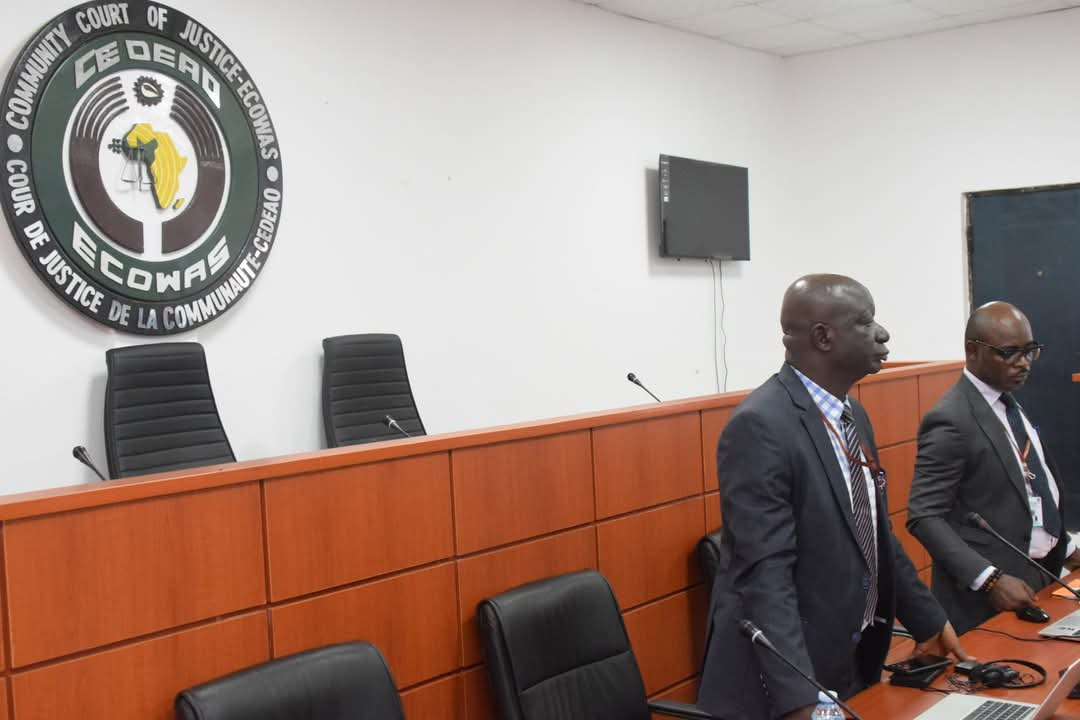
The ECOWAS Court of Justice has ruled that the Republic of Senegal violated the rights to freedom of expression, access to information, and the right to work through internet and social media shutdowns implemented in June and July 2023.
The case, numbered ECW/CCI/APP/37/23, was brought before the Court by the Association des Utilisateurs des Technologies de l’Information et de la Communication (ASUTIC) and its president, Mr. Ndiaga Gueye, an IT consultant.
The applicants alleged that the Senegalese government, through its Ministries of the Interior and Communication, arbitrarily restricted mobile data and access to social media in response to protests following the conviction of opposition leader Ousmane Sonko.
Senegal defended its actions by citing concerns about national security and public order.
The Court established its jurisdiction over the matter and found the claims of both applicants regarding freedom of expression and access to information to be admissible.
Mr. Gueye’s individual claims related to the right to work and assembly were also deemed admissible, while ASUTIC’s claims concerning the rights to work and assembly were declared inadmissible.
In its judgment, the Court reaffirmed that access to the internet and social media is a vital component of the right to freedom of expression and information. It held that Senegal’s restrictions lacked legal clarity, failed the test of proportionality, and violated Article 9 of the African Charter on Human and Peoples’ Rights and Article 19 of the International Covenant on Civil and Political Rights (ICCPR).
Read Also: Breach of Trust: Adenuga Demands Justice in Igando Orudu Land Dispute
The Court also determined that the internet shutdown adversely affected Mr. Gueye’s professional work, thus violating his right to work under Article 15 of the African Charter and Article 6 of the International Covenant on Economic, Social, and Cultural Rights (ICESCR). However, Mr. Gueye’s claim regarding the right to freedom of assembly was dismissed due to insufficient evidence.
In its final orders, the Court:
- Declared the internet and social media shutdowns unlawful and a violation of the applicants’ rights to freedom of expression and access to information;
- Declared a violation of Mr. Gueye’s right to work;
- Awarded 250,000 CFA francs each to ASUTIC and Mr. Gueye for the violations of their rights to freedom of expression and information;
- Awarded an additional 250,000 CFA francs to Mr. Gueye for the violation of his right to work;
- Ordered Senegal to refrain from imposing unlawful or arbitrary internet restrictions in the future.
The panel of judges included Hon. Justice Sengu Mohamed Koroma (Presiding), Hon. Justice Dupe Atoki, and Hon. Justice Edward Amoako Asante (Judge Rapporteur).






